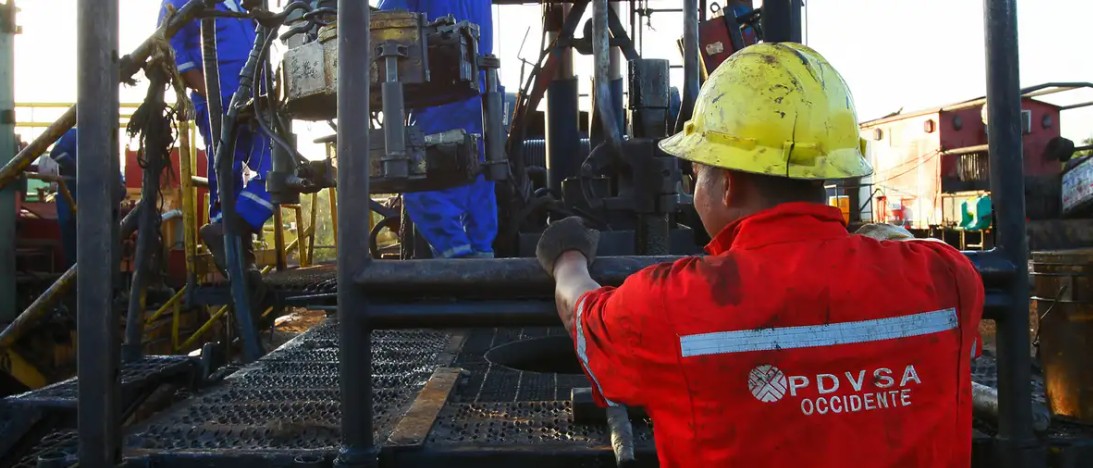
Trinidad and Tobago is preparing the mass deportation of undocumented Venezuelan migrants. Previously, Venezuela suspended its energy agreements with the Caribbean archipelago. Venezuelan President Nicolás Maduro called Trinidadian Prime Minister Kamla Persad-Bissessar a warmonger and war instigator, accusing her of turning Trinidadian territory into a US aircraft carrier.
Venezuela and Trinidad and Tobago are separated by a small bay, which at its narrowest point is only 11 kilometers wide. The trigger for this crisis was the US warship USS Gravely, which docked in Port of Spain for military exercises, and which is part of the fleet deployed in the Caribbean for counter-narcotics operations in the region, for which the US has said it is prepared to also operate on land.
The Venezuelan government denounces that the US is seeking to overthrow it in a war over oil and gas. It also claims to have dismantled an alleged criminal cell linked to the CIA, which was plotting to attack the USS Gravely and frame Caracas.
Oil, gas, or US geopolitics in the Caribbean?
The North American objective has nothing to do with oil or gas; it's purely a geopolitical matter, Alberto Cisneros, CEO and president of Global Business Consultants (GBC), a firm specializing in strategic outsourcing for the oil and gas sector in Latin America, told DW. The North American market is completely saturated with its own production, he explained, referring to shale gas and shale oil.
Venezuela—like Colombia or Cuba—is a Caribbean country very close to Florida, over which a global actor like the U.S. seeks to regain control, while also eradicating Russian, Chinese, or Iranian influence in the country, observes Cisneros, PhD in Political Science and International Relations.
What is the agreement suspended by Venezuela?
The fundamental agreement now affected by Maduro's suspension aimed to develop Campo Dragón, a gas field that has not yet produced a single molecule of gas, Oswaldo Felizzola, coordinator and professor at the International Center for Energy and Environment at the IESA business school in Caracas, explains to DW.
The field is 100 percent in Venezuelan waters, about 50 kilometers off the eastern coast, Felizzola explains. But it requires offshore development, which Venezuela is not technically equipped to undertake. The agreement stipulated that the British multinational Shell, with a license from the Office of Foreign Assets Control (OFAC), which exempts it from US sanctions, would evaluate transporting that gas to Trinidad and Tobago, with investment from Shell and Trinidad and Tobago (through NGC, its National Gas Company).
The archipelago, with very old gas reservoirs, declining production and a total dependence on gas for its electricity generation (99.5 percent in 2023), has the appropriate facilities to receive this raw material, whose deposit is also very far from the Venezuelan national gas network, Felizzola explains.
However, to approve its exploitation without being affected by sanctions, the Donald Trump administration imposed the condition that the Venezuelan state oil company PDVSA receive no cash payments, only in-kind compensation. In this case, Venezuela would receive a portion of the gas produced, recompressed, and packaged by Trinidad and Tobago in spheres. Venezuela has no way to consume that gas without making significant investments, the expert explains, but it hoped to sell it.
To achieve this, he still faced another obstacle, adds Venezuelan engineer Felizzola: the US oil company ConocoPhillips sued the Government of Trinidad and Tobago to seize all the gas production supplied to it by PDVSA, in order to pay the Venezuelan company's debts to that US oil company.
Venezuela or Trinidad and Tobago: who loses or wins?
Venezuela's move to suspend energy agreements with Trinidad and Tobago effectively ends one of only two exemptions authorized under the Trump administration to operate in Venezuela, despite its policy of total sanctions against the country, warns consultant Cisneros. One is Chevron's, which continues to produce and export oil exclusively to the North American market, paying PDVSA with a share of that production; the other is Shell's in Campo Dragón, now affected by the suspension of the agreement announced by Maduro.

